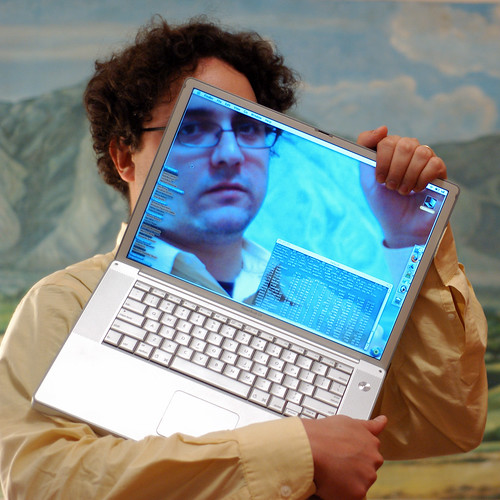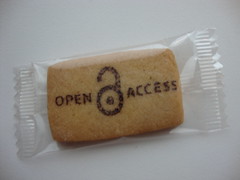Is all data research data?
In times when academia debates about the openness and transparency of academic work, and the processes associated with it, more questions than answers tend to be formulated. And as it usually happens, different approaches often co-exist. There is nothing wrong with that. It is only natural when trying to make sense of the affordances that the web, as a space of participation and socialisation, provides. Nonetheless, the latests news on the openness of research publications leave me slightly concerned regarding the misunderstanding between the Open Access Gold Route and the Gold Mine publishing houses are trying to maintain with their take on Open Access. This will however be content for another post as this post relates to some still unripe reflections of mine on the topic of online research ethics. …although one could argue that paying to access publicly funded knowledge also touches on some ethics…!
 One of the big questions we are currently debating on twitter deals with the use of data publicly available online. Given the current events regarding how governments are using information published online by their own citizens, we could conclude that no data is, or for that matter ever was, private! But as researchers interested in the prosumer phenomenon (online users who consume and produce content available on the web) a key issue arises when doing research online:
One of the big questions we are currently debating on twitter deals with the use of data publicly available online. Given the current events regarding how governments are using information published online by their own citizens, we could conclude that no data is, or for that matter ever was, private! But as researchers interested in the prosumer phenomenon (online users who consume and produce content available on the web) a key issue arises when doing research online:
- Can we use information that is publicly available online, i.e., that can be accessed without a password by any individual, for research purposes?
- What ethics should we observe in this case?
Researching online data that is produced and made available online voluntarily, or involuntarily, by the regular citizen is so new, even to those in Technology Enhanced Learning (TEL), that we are still trying to make sense of how to go about this. Publications regarding this matter are still scare, and even those that I have had access to deal mainly with the issues of anonymity (Here is a recent example). A big issue indeed, especially in a time where participating online means to create an online digital footprint that not only allows information to be traced back to an individual; but also creates, to a certain extent, a (re)presentation of a given ‘self’, voluntarily or involuntarily… In TEL we call this “Digital Identities” (more on this in a forthcoming post). Digital identities disclose personal, and sometimes private, information within the online social environments in which individuals interact, we assume, on their own accord. But are they always conscious of the publicness of the information they publish? Do they perceive their participation online as an form of creating and publishing information?
This then begs the question:
- Is, can or should such information be automatically converted into research data? In other words, are we, as researchers, entitled to use any data that is publicly available, even if we claim that it is only being used for research purposes?
My gut feeling is that no, we cannot! Just because the information is publicly available online and therefore accessible to use, I, as a researcher, am not entitled to use it without previously seeking and obtaining consent from its creator. This, obviously, generates more obstacles than those researchers would probably like to experience, but the truth is that collecting publicly available information without the consent of its producers does not seem right to me for the following reasons:
- We (people engaged in TEL) need to step outside of our own taken-for-granted understanding of online participation, and note that many people don’t realise, or at least have not given it considerate thought, that online communication can be public and that interactions online, by its very nature of written speech are more durable than equivalent forms of face-to-face interaction.
- Anonymity and confidentiality are topics that need to be discussed with the research participant independently of the type of information we want to use. Just because the content is there available to the world, it doesn’t mean it’s available for the take. That is invading the public sphere of an individual, if that makes any sense(!), because as it becomes research data we will be exposing (transferring even!) it to other public spaces.
- I truly believe that every research participants has the right to know he/she is one. This is not merely a courtesy on the part of the researcher, it is a right that they have! Content produced online, unless stated otherwise, belongs to its producer and should therefore be treated as such. (….maybe what we need is a creative commons license for research purposes! ]
Niessenbaum, and Zimmer, amongst others, talk about contextual integrity, a theory that rejects the notion that information types fit into a rigid dichotomy of public or private.’ “Instead, there is potentially an indefinite variety of types of information that could feature in the informational norms of a given context, and whose categorization might shift from one context to another.” (Zimmer, 2008, p.116)
Although I am very amenable to the argument of context, and that nothing is absolute, and everything is relative [getting philosophical now!], I think that the context of research practice begs for informed consent independently of the research data being publicly and privately available. In my opinion, converting online information into research data should always be an opt in, and not an opt out, activity involving those to whom the information belongs.
…but as usual, this is only my 2 cents and I look forward to other people’s views on this.





